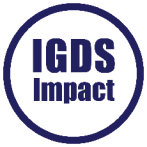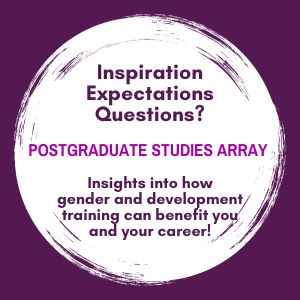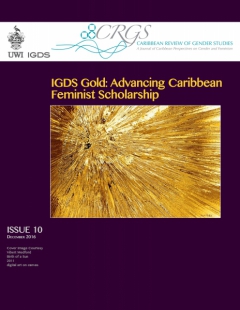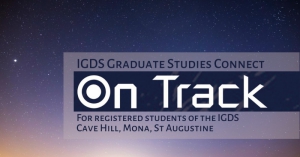Postgraduate Studies
Building Independent Researchers in Caribbean Gender Studies.
Building a world where young people are empowered to shape tomorrow.
Be a change maker.
Be a game changer.
Make an impact.
Improve lives.
Transform communities.
The IGDS covers many fields of gender-based research and continues to provide a coherent base for trans-, multi- and inter-disciplinary research on women, men and gender in areas of international and regional importance. Gender and Development Studies as an interdisciplinary field seeks to understand the complexity of Caribbean gender relations and its interactions with economic, social, political, cultural and ecological systems – in other words, the sub-systems that constitute Caribbean political economy, environment and society.
The ideal IGDS graduate will have a desire for knowledge, strong critical thinking and problem solving skills, competence in interdisciplinary gender analysis, and the ability to apply theory to policy and to everyday practices. The graduate will be actively committed to social justice, valuing both diversity and collaboration. The graduate will also understand that evaluating gender difference is central to self-awareness and a commitment to the transformation of unequal power relations.
Messages to Graduate Students and Prospective Graduate Students
Postgraduate Degrees
Diploma
M.Sc
M.Phil
Ph.D
List of Postgraduate Courses
Transition between Programme Levels and Degrees
Prospective Students
Office of Graduate Studies and Research (OGSR)
OGSR Scholarships page
OGSR Documents Library
GATE E-Service
Messages to prospective graduate students
Resources
Faculty
IGDS Documentation Centre
Gender Related Journals
Gender and Development Studies Databases
Writing and Editing
Opportunities
We encourage our Graduate Students to become involved in research projects at the IGDS.
Research areas of interest are revised periodically, please speak with our Academic Advisors.
Research Areas of the IGDS
Funding | Scholarships
Louraine Emmanuel Graduate Prize
Application Process
Graduate student intake occurs every two years for Diploma and MSc programmes and twice per year (deadlines each semester) for MPhil and PhD programmes.
For detailed information about each programme see programmes above.
All applications must be submitted by the designated deadlines to the Office of Graduate Studies and research Admissions.
See http://sta.uwi.edu/admissions/postgrad/
Apply https://sta.uwi.edu/apply
Contact us
Academic Advising: Please call or email to schedule an appointment or make an enquiry concerning IGDS graduate studies courses and programmes.
Email: igdsgraduatestudies@sta.uwi.edu
Dr. Angelique Nixon
Lecturer and Graduate Studies Coordinator (AY 2020-2021 onward)
Email: Angelique.Nixon@sta.uwi.edu
Tel. 868-662-2002 ext. 83548
Ms. Asha Inniss
Clerical Assistant
Email: Asha.Inniss@sta.uwi.edu
Tel: 868-662-2002 ext. 82533
 Banner image: IGDS regional graduate students and staff with Trinidadian Ambassador to Cuba, His Excellency Dr. Lancelot Cowie in Havana, Cuba on the IGDS Graduate Studies Cuba Study Tour, June 2018.
Banner image: IGDS regional graduate students and staff with Trinidadian Ambassador to Cuba, His Excellency Dr. Lancelot Cowie in Havana, Cuba on the IGDS Graduate Studies Cuba Study Tour, June 2018.
Solidarity, peace and friendship was the theme for our day. As we walked to the University of Havana for our third day of the Cuban experience, we casually moved from one topic to the next, bonding as a cohort, as individuals, strengthening our connections with each other, cultivating our growing friendships. We were greeted by Ambassador Jose Piedra Rencurell, a diplomat and former Ambassador to Jamaica, who started us with the quote “Motherland is Humanity” by Jose Marti, a Cuban martyr. This powerful quote fuels the philosophy of the Cuban foreign relations and ideology of cooperation. As they have built and continue to strengthen foreign relations, they embrace the basic principles of internationalization, the will to develop states and the defense of independence and sovereignty. As he historicized the Cuban and Anglophone Caribbean relations, he noted the significance of December 8, 1972, which marked the official establishment of diplomatic relations between Cuba and the region - particularly Barbados, Guyana, Jamaica and Trinidad and Tobago. He expressed the sentiments of the Cuban people, acknowledging their gratitude for the relationships and support. He shared that while Cuba may not have fiscal resources for investment and trade, they are able to support their diplomatic relations through sharing Human Resources through their scholarship and health professionals program.
We transitioned into a lively session with a group of undergrad Economic students, who shared their experiences of university life, youth solidarity and engagement in the political processes to see the changes they want to see in Cuba. They brought colour and vibes to the day, especially when we did a cross culture dance exchange of dance with Gina and Marcus giving them a taste of soca and wining , while they did several routines and livened us up with some conga and rhumba!
Lunch took us to a local, neighborhood restaurant, frequented by students and neighborhood workers. A tiny space with a high turn over. You had to eat and leave. No lingering. You had to make space for the folks waiting in line for a spot. The food was amazing and was just the right touch of home. As we wandered down to the craft market, local clothing, admiring the bags and t-shirts emblazoned with images of Che, the Cuban flag and the classic rides, we were reminded of the pride of the Cuban people, and their friendly spirits.
We spent the afternoon at the Cuban Institute of Friendship of the Peoples (ICAP), where we were impressed to hear of Cuba in the Caribbean region, women in the revolution, and the work of the institute in promoting peace. Surrounded by members of NGOs and descendants of Anglophone Caribbean migrants, as we took the opportunity to chat with the Trinidadian Ambassador to Cuba, His Excellency Dr. Lancelot Cowie, we were happy and excited. As we reflect on today, we recognize the value of building relationships, strengthening diplomatic ties, cultivating friendships, promoting peace and solidarity.




















